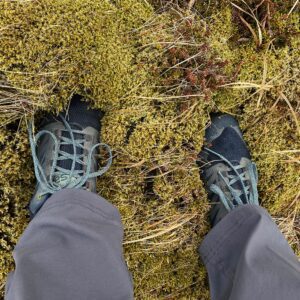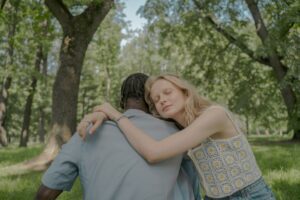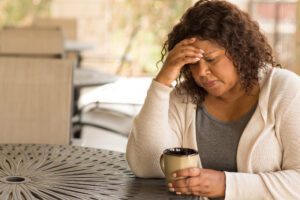What were the three things you missed the most during the (hopefully prior) intense lockdown days of the pandemic? For me, it was getting to spend time with my people rather than having Happy Hour over Zoom, going to concerts or other performances, and…travel. I love my job as a professor but if someone would simply pay me to travel constantly, I would be in hog heaven. Thus, if I couldn’t be a researcher and educator, I would have to find a way to get paid to travel the world. Now that parts of the world are opening back up, travel is also becoming more of a possibility, though with some challenges depending on where you want to go and how you plan to get there.
Iceland in particular is one of my happy places. It is also one spot where I want some of my ashes scattered when I leave this earth. Yes, it is that amazing. The rugged moonscape-like terrain with waterfalls so massive and thunderous you have to yell to the person standing next to you to be heard. It is like stepping back in time to when the globe was still wild and less inhabited. So when I got an email indicating we could get cheap airfare to the capital of Reykjavik on short notice back in May, we booked a quick trip.

It was borderline magical. We got to spend about four and a half days in serious exploration of the western side of the country. It felt liberating to get outside of Utah and the United States. To see new sights and feel all the feels (like this wild, dense and spongy vegetation along the highway in northwest Iceland shown in the photo shown here. It was like walking bouncily on a giant bed of marshmallows.) To explore another part of the world that is distinct from the areas we call home. It was also helpful to disconnect from our demanding work lives. I learned something about myself – that I was willing to get that super fun and somewhat invasive Covid test done twice — the first upon entering Iceland and the second to get back into the States — in order to travel for less than a week. Clearly, travel is even more of a passion of mine than I previously realized. Not only do I love visiting and learning about new places, but I relish the time and conversation with my partner and my offspring.
Not All Travel Is Created Equality
Many people engage in leisure travel because it is enjoyable or fun. It can be exciting, especially when our travels take us to a new place to engage in novel activities. Tubing down an unknown river a few hours from our home. Visiting an open air market where the cuisine looks and smells unknown to us. Trying to navigate the public transportation system in an unfamiliar city. Doing grocery shopping in a place where we don’t speak the language and thus can’t read any of the food labels.
Not only can travel be enjoyable, it is often also good for us. Leisure travel improves our well-being and satisfaction with life. What does travel need to consist of to get this improvement in quality of life? I’m glad you asked.
- Autonomy in our travel is essential if we want travel to improve our well-being. In other words, we need the ability and freedom to engage in travel in a way that suits us and that we have some level of control over. This includes deciding how to spend our time and determining our own schedule while we are traveling. Autonomy is important because of its impact on our recovery – how much relaxation, detachment and mastery we get from our travels. Relaxation provides the opportunity to decompress, to chill out, and not have too much demanded of us. Detachment means to distance oneself from the demands of the job and to not have to think about one’s work life. Mastery refers to the experience of trying new things, taking on a challenge or broadening one’s perspective. Relaxation, detachment and mastery are all important because they lead to more satisfaction with our lives.
- The length of the trip we take matters because it shapes how much relaxation, detachment and mastery we achieve. With shorter trips — 1 to 7 days — relaxation and detachment are more likely to occur, but less mastery. Now, mastery doesn’t mean you’ve mastered a language or learned how to successfully summit the Himalayas. It simply means doing things that broaden your horizons or challenge your mind in new ways. Many 20 and 30 somethings or service industry workers may not have 8 days of paid time off to take in a row. You can get some mastery or expansion of your perspective with a shorter trip, you may just need to be highly intentional about working that in so that you get the most bang for your travel buck.
- Sharing about your trip is another critical factor in improving well-being through travel. Doing so during the trip boosts trip satisfaction while traveling. Sharing after returning from a trip enhances our general state of happiness and life satisfaction after the trip is complete. So, call your parents while you’re traveling and tell them all the interesting places, people and foods you’ve seen. When you get back home and have unpacked your suitcase, post those trip photos to social media to share with other family and friends. It can also be very gratifying on a day when life isn’t being kind to you to go back to those social media posts to relive your traveling adventures.
Squeezing the Most Happiness Benefits Out of Travel
- Stay unplugged while on vacation. I know, this is tough. It can be challenging to put the phone or laptop away for several days, much less a week or more. However, the more you unplug from any work-related devices, the more relaxation and detachment from work you will get, and thus the more recovery you will achieve. This is key because more recovery means you come home more equipped to fully engage in work upon your return. In other words, unplug more to recover more fully. This may mean waiting to post any photos to social media until you’re back from your traveling adventures.
- On longer trips, look for learning opportunities or new challenges to take on. Mastery has bigger impacts on our life satisfaction compared to relaxation and detachment. So, if you can swing a trip of a week or more, scout out the possibilities for taking on a challenging hike, navigating a new city by foot or on a bike, learn some of the language if you’re in a foreign country where you don’t speak the language, or take a tour to learn about the food, wine, culture, or history of your travel destination.
- Think creativing about ways to travel on the cheap. When I was growing up there was very little money for extras, including travel. However, one summer my mom took me, my sister and my grandmother to Palo Duro Canyon State Park for the Texas musical performance. It was a very long car ride there from San Antonio and the accommodations we could afford were not swanky, but here 35 years later, I still have several vivid memories of that trip. Watching the musical performance in the outdoor amphitheatre. Spending quality time with the women in my family. Eating at a Mexican restaurant where the food was good but the service was very slow (that or I was just hungry).
- At times, leaving your home city may not be feasible – logistically, time-wise, or from a cost perspective. Consider how you might explore the unknown or less familiar parts of town. For instance, every month or so I swing by the Chinese supermarket on State Street in Salt Lake City. It is large and usually crowded. I read English and a tiny bit of Spanish, so unless I go with a friend who speaks Chinese, I am on my own! It is still a little bit intimidating shopping there because I’m sure the other shoppers know that I have almost no idea what I’m looking at or shopping for. However, it tickles my brain to pick up pantry items, sauces, or fresh produce, not knowing what it is for, but thinking surely I can figure it out and try something new over the next week. Half the fun is doing the shopping and the other half is researching what I purchased and what recipe I can use it in.

Bottom line: Travel is not just for kicks and giggles. We can use it mindfully to recover from work and the pressures and demands of our busy lives. Even if we don’t have the time or financial resources to take the trip of our dreams, there are creative ways to achieve some of that recovery and enhanced happiness right where we live or in a less explored area close by.







2 thoughts on “Travel As a Road to Recovery”
Love this! Can’t wait to apply some of these things on my next trip. Thanks for your amazing insights.
I never really put much thought into how much retelling about our trip leads to more enjoyment. But now thinking back it really does! I do get excited telling others of all the fun things we did and experienced! Love unplugging from electronics on vacation! So needed! I really enjoyed this article very much! Happy travels 🙂